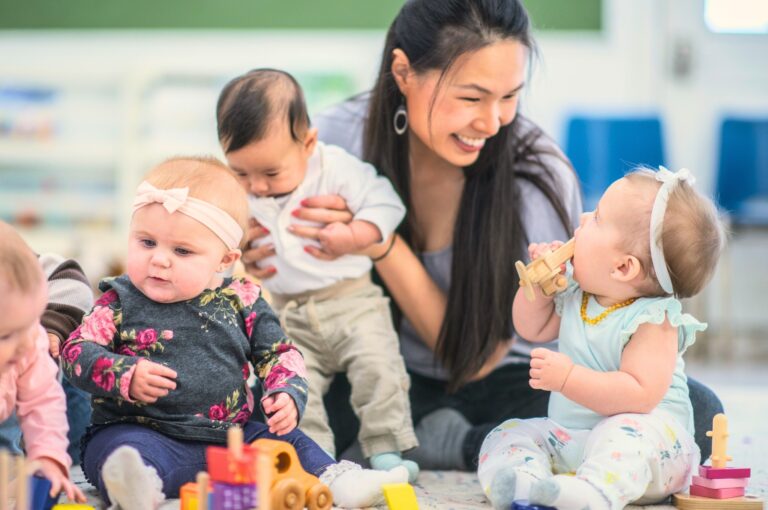The Power of Meaningful Relationships
How Early Childhood Educators Can Enhance Their Practice and Reap the Rewards
As an early childhood educator, you play a crucial role in building strong, positive relationships with your children. These relationships are essential for promoting healthy development and well-being in children, as they provide a sense of security, trust, and attachment that children need to thrive.
Building strong, positive relationships with children brings also many rewards for early childhood educators. When you establish trust, understanding, and a sense of mutual respect with your students, you will find that your work becomes more fulfilling and enjoyable. By creating a supportive learning environment, you will see your students become more engaged, curious, and motivated to learn, and you will be able to witness their progress and growth firsthand.
To build strong, positive relationships with children, it is important to focus on the following key areas:
1. Understanding the Unique Needs of Each Child
Every child is different and has their own unique strengths, challenges, and preferences. By taking the time to get to know each child on an individual basis, you can tailor your approach to meet their specific needs and help them feel seen and valued.
2. Creating a Warm and Welcoming Environment
Children thrive in environments that feel safe, comfortable, and welcoming. By creating a space that is warm, inviting, and filled with positive energy, you can help children feel at ease and ready to learn.
3. Providing Consistent, Positive Interactions
Children need consistent, positive interactions with caregivers in order to build trust and develop strong relationships. By providing regular praise, encouragement, and positive reinforcement, you can help children feel valued and supported.
4. Encouraging Open Communication
Communication is key to building strong relationships with children. By encouraging open and honest communication, you can help children feel heard and understood, and create a sense of mutual respect and trust.

Rewords for Early Childhood Educators
As an early childhood educator, there are numerous benefits you can gain by building strong, positive relationships with your children. These benefits include:
1. Improved Behavior
Children who have strong, positive relationships with their caregivers are more likely to exhibit positive behaviors, such as cooperation, empathy, and self-control. They are also less likely to engage in challenging behaviors, such as aggression and defiance.
2. Increased Engagement and Motivation
Children who feel safe and supported in their learning environment are more likely to be engaged and motivated to learn. By building positive relationships with children, you can help to create a learning environment that is stimulating and enjoyable, and that encourages children to explore and experiment.
3. Better Social-Emotional Development
Children who have strong, positive relationships with their caregivers are more likely to develop healthy social-emotional skills, such as self-regulation, empathy, and social skills. These skills are essential for success in school and in life.
4. Enhanced Communication
When children feel safe and supported, they are more likely to communicate openly and effectively with their caregivers. This can help you to better understand their needs and interests, and to tailor your approach to meet their specific needs.
5. Improved Job Satisfaction
Building strong, positive relationships with children can be deeply rewarding for early childhood educators. By helping children to thrive and grow, you can experience a sense of purpose and fulfillment in your work, and feel a strong sense of job satisfaction.
By focusing on building strong, positive relationships with children, early childhood educators can help to create a safe and supportive learning environment that promotes healthy development and well-being in children. This, in turn, can lead to improved behavior, increased engagement and motivation, better social-emotional development, enhanced communication, and greater job satisfaction for educators.

Elevate your teaching skills and stay ahead of the curve! Receive our monthly Insights, packed with professional development opportunities, classroom inspiration, and the latest trends in education. Don’t miss out on the chance to take your teaching to the next level. Subscribe now!







